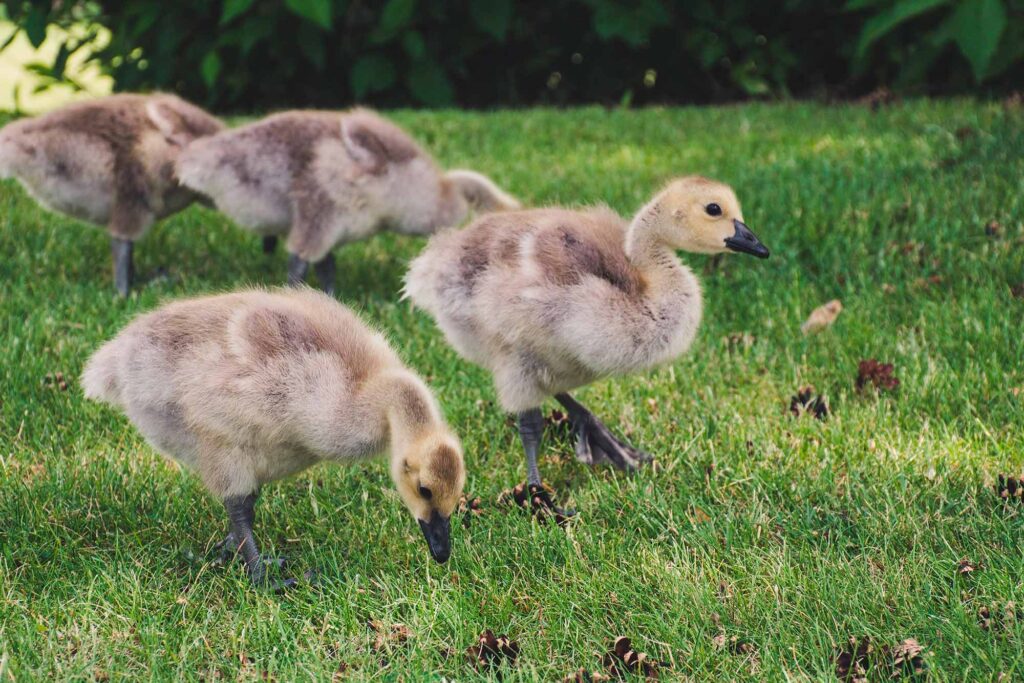We have hundreds of species of songbirds that nest in Minnesota every summer, and many species that stay over winter. The information provided is meant to be a general guide for any species of bird that hatches young that are born naked and completely dependent on their parents for feeding (altricial birds).
1. Any obviously-injured birds(s) should be brought immediately to a permitted wildlife rehabilitator or rehabilitation facility.
If the bird is known or suspected to have been attacked by a cat (or in cat’s mouth), bring the bird to a rehabilitator/facility immediately despite whether there is a visible injury. Bacteria from a cat’s mouth can cause a fatal infection in a very short time and requires immediate medical intervention to prevent death.
If a bird flies into a window and appears stunned but healthy (no obvious broken bones, drooping wings, or blood), provide a safe area for the bird to recover by placing it into a box with air holes or paper bag or covering it with a basket. After 1 hour, open the container to allow the bird to fly away. If the bird successfully flies away, congratulations on helping a bird recover from a mild concussion. If the bird does not fly away or tries but is impaired, re-secure the bird and transport it to a wildlife rehabilitator or facility. Consider placing bird-safe decals or streamers on windows to prevent repeat injuries.
2. If you find a healthy nestling baby bird (naked or incomplete feathering, soft yellow beak edges) on the ground, look up for the nest. If you are able to place the bird back into the nest, do so, but keep pets and people away while you monitor from a distance to watch for the parents coming back to feed the baby. If there is no parental activity within 1-2 hours, or the baby ends up on the ground again, contact a wildlife rehabilitator or facility and prepare to bring the baby in for rehabilitative care.
3. If you find a healthy feathered bird (fully feathered but short tail and wings, tiny amount of soft yellow beak at the edges) hopping around on the ground, it is likely a fledgling bird learning to fly. If the bird is uninjured, keep pets and people away while you monitor from a distance (indoors if possible) to watch for the parents coming back to feed the baby. If there is no parental activity after 2 hours, contact a wildlife rehabilitator or facility and prepare to bring the baby in for rehabilitative care.
4. Migratory birds are protected under federal law. It is illegal to disturb a migratory bird nest after it has laid eggs. If you have concerns about a nest, contact a wildlife rehabilitator, rehabilitation facility, Department of Natural Resources (DNR), or the US Fish & Wildlife Service (USFWS) for advice.
*It is against the law to keep wild animals except to transport them to a permitted wildlife rehabilitator or facility. If an animal needs rehabilitation, place it in a secure container with air holes. DO NOT FEED the animal(s) anything – including water. Infants will need a mild heat source (heating pad on low under half the container or warm water bottle) until they can be transported. Bring it as soon as possible to a permitted rehabilitator or facility for professional care.


